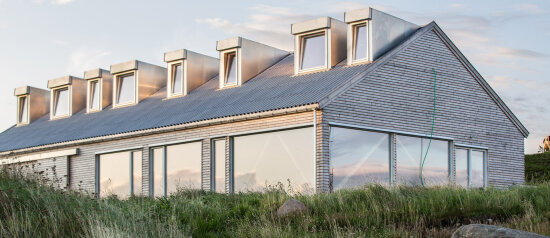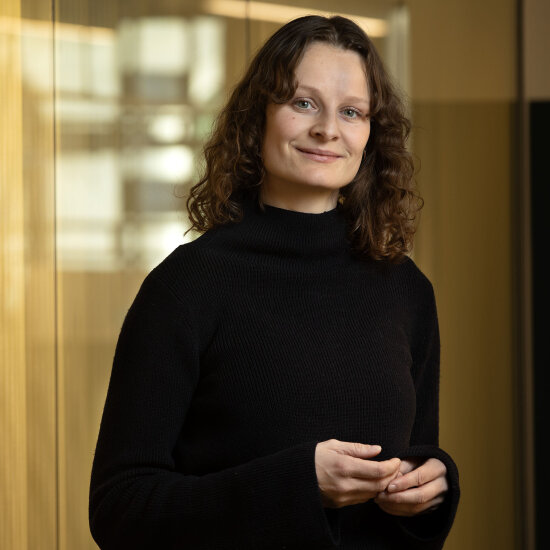Four municipalities in Agder county are the partners behind the project entitled ‘Sørnorsk kystnatur’. The objective is to preserve the coastal landscape of Southern Norway while also making it accessible for visitors. Landowner Knut Olaf Reiersen at Lista has contributed to the project since the very beginning.
When plans were made for a nature trail with an associated car park on Reiersen’s land, a proposal was put forward to build a longhouse for people and livestock, based on local building traditions dating back centuries. The idea was for the longhouse to work as a buffer between the car park and a key habitat for birds.
He joined forces with architects Stiv Kuling and together they started working in close partnership with the conservation agencies to create a longhouse that would play the part of a barn, a holiday let and an educational space.
Barn with holiday lets
The resulting building now houses a barn, two holiday flats and an educational space. The flats are partly located immediately above the barn, and the farmer has personally built the beds from the same material he used for the barn interior.
The Longhouse has made it possible to resume the tradition of having cows on summer grazing in this locality. Grazing livestock keeps the cultural landscape alive and protects it from invasive species.
Animals close up
The longhouse at the edge of the sea fulfils several excellent objectives. Holidaymakers and walkers experience calm and relaxation in a unique landscape. The project has put Lista on the map and raises awareness of local traditions and biodiversity.
In the summer, there are cows with suckling calves on site, so holiday guests and passers-by get to learn about livestock and their ways. They may even get to witness the birth of a calf – a rare experience in today’s society, and one which may be especially rewarding for modern people whose lives are far removed from the realities of nature.
The Lista Longhouse has become a strong brand and tourist destination, which has improved the farmer’s earnings. Bird watchers and anglers have found a favourite place to spend time. And the sand dunes and wetland biotope has become an important part of the work to communicate the inherent value of nature.
The Longhouse at Lista: Modern multi-use longhouse with a barn, holiday let and educational space all in one
By: Knut Olaf Reiersen and Stiv Kuling
Design disciplines: Architecture and Heritage and conservation
Recipient of the DOGA Award
This project has received the DOGA Award for Design and Architecture for its outstanding qualities, and for showing how strategic use of design and architecture create important social, environmental and economic value.
These are three reasons why this is an exemplary project:
- Helps preserve a unique biotope
Lista’s special landscape of sand dunes and wetlands has been vital for migrating birds throughout time. It is the interaction between grazing livestock, plants, birds and insects that has formed the unique biotope. This interaction has now been safeguarded because the Lista Longhouse has brought grazing livestock back on site.
- Interpreting our cultural heritage
The longhouse carries on the old tradition of summer grazing and showcases ancient building traditions. The longhouse has become a popular visitor destination and provides a welcome supplement to the farmer’s income.
- Close-up views of livestock and wildlife
Visitors to the Lista Longhouse are treated to close-up views of livestock, wildlife and a unique landscape. This gives a rewarding experience of nature, and it raises awareness of irreplaceable values that need our protection.


